Crisis communication in marketing refers to the strategies and practices used to manage a company's messaging during a challenging situation. When a crisis occurs, how a business communicates can determine the impact on its reputation, customer trust, and overall stability. Effective communication can help mitigate negative effects, while poor communication can exacerbate the issue.
Understanding the principles of crisis communication is crucial for businesses of all sizes. A well-prepared response can demonstrate accountability, transparency, and concern for stakeholders. It involves quickly disseminating accurate information, addressing concerns, and maintaining consistency across all channels.
Effective crisis communication strategies are essential for protecting a brand's reputation and sustaining customer relationships. This article will delve into the components that make up a successful crisis communication strategy, common pitfalls to avoid, and practical steps to build a robust crisis communication plan.
Understanding Crisis Communication in Marketing
Crisis communication in marketing involves managing and directing information during events that could harm a company’s reputation or operations. It requires a strategic approach to convey the right messages to the public, stakeholders, and employees. The goal is to control the narrative and limit damage.
Effective crisis communication begins with quick recognition of the issue. Businesses need to be alert to internal and external signals that indicate a brewing crisis. The faster the issue is identified, the sooner a response can be formulated.
Understanding these foundational elements can help a business respond effectively to a crisis, minimize negative impacts, and safeguard its reputation.
Key Elements of Effective Crisis Communication
- Transparency: Honesty is critical. Clearly explain what happened, what you are doing to address it, and what steps you will take to prevent it in the future. Openness and authenticity help build trust and show accountability.
- Timeliness: Respond quickly to the crisis. Delaying communication can worsen the situation and allow rumors to spread. Providing timely updates as more information becomes available keeps stakeholders informed and engaged.
- Consistency: Ensure that all communications are consistent across different channels. Conflicting messages can confuse and mislead your audience. Regular updates through various platforms help reinforce the message and reassure the public.
- Empathy: Show concern for those affected by the crisis. Address their needs and feelings with empathy and understanding. Acknowledging the impact on people can humanize the company and strengthen public support.
- Preparedness: Having a crisis communication plan in place is essential. This plan should include designated spokespersons, pre-drafted statements for different scenarios, and a clear chain of command. Being prepared allows for a swift and organized response.
- Monitoring and Feedback: Keep an eye on public reaction and media coverage. Analyze this feedback to adjust your communication strategy as needed. Responding to concerns and correcting misinformation helps maintain control over the narrative.
Common Mistakes to Avoid During a Crisis
- Lack of Preparation: One of the biggest mistakes is not having a crisis communication plan in place. Waiting until a crisis occurs to figure out what to do can lead to confusion and delayed responses. A well-thought-out plan ensures that everyone knows their role and what steps to take.
- Ignoring Social Media: Social media can amplify crises quickly. Ignoring or responding too slowly to social media can worsen the situation. Monitor social media channels continuously and respond promptly to concerns and misinformation.
- Inconsistent Messaging: Providing conflicting information through different channels creates confusion and can damage trust. Ensure that all communications are consistent across all platforms, including social media, press releases, and internal communications.
- Failure to Apologize: Refusing to acknowledge wrongdoing or failing to apologize can alienate customers and stakeholders. A sincere apology demonstrates accountability and can help mend relationships.
- Overloading Information: Providing too much information at once can overwhelm your audience. Stick to key facts and updates. Clarity and simplicity help people understand the situation better.
Strategies for Building a Crisis Communication Plan
- Identify Potential Risks: Conduct a thorough risk assessment to identify potential crises that could affect your business. Consider internal and external threats, such as product recalls, cybersecurity breaches, and public relations issues.
- Develop Clear Protocols: Create specific protocols for different types of crises. Define the steps to be taken, who will be involved, and how information will be disseminated. Assign roles and responsibilities to ensure an organized response.
- Designate Spokespersons: Choose trained spokespersons who will communicate on behalf of your company. Ensure they are well-prepared to handle media inquiries, deliver statements, and interact calmly under pressure.
- Create Pre-Drafted Statements: Develop templates and pre-drafted statements for different crisis scenarios. Having these ready can save time and ensure swift communication when a crisis occurs.
- Conduct Regular Training: Train employees on crisis communication protocols and conduct regular drills. This preparation helps ensure that everyone knows their role and can act quickly and effectively in an actual crisis.
- Establish Monitoring Systems: Implement systems to monitor news and social media for any signs of a crisis. Early detection allows for a faster response and better management of the situation.
- Evaluate and Update the Plan: After a crisis, review the response and update the plan based on lessons learned. Regularly update the plan to reflect new risks, changes in the business environment, and advancements in communication technology.
Conclusion
Crisis communication is an essential aspect of marketing that requires careful planning and execution. Understanding the fundamentals, such as transparency, timely responses, and empathy, helps businesses navigate tough situations effectively. Avoiding common mistakes like inconsistent messaging and ignoring social media ensures a smoother crisis management process.
Building a comprehensive crisis communication plan is critical. By identifying potential risks, developing clear protocols, and training employees, companies can be well-prepared for any crisis. Consistent monitoring and periodic updates to the plan ensure the business remains ready to tackle new challenges.
Contact Kinetic319 today for expert marketing strategy services to develop a crisis communication plan tailored to your business needs. Let us help you protect your brand and ensure you are prepared for any crisis!

